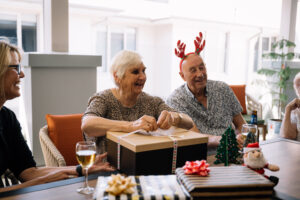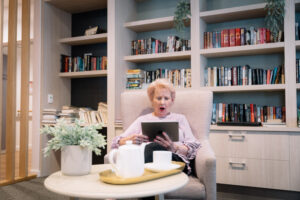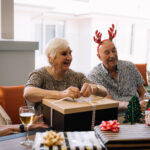Anxiety is often underdiagnosed and undertreated in the elderly because it can develop gradually, and the symptoms may not be as common or recognisable as in the general population. An elderly person may initially present with physical complaints and difficulty sleeping rather than showing signs of anxiety. If a few of the following signs and symptoms are present, it is wise to seek medical advice.
Behavioural Signs:
- Difficulty making decisions
- Not being assertive such as avoiding eye contact
- Avoiding situations which cause anxiety
- Refusing to do routine activities
Physical Symptoms:
- Increased heart rate
- Muscle tension and pain
- Sweating, shaking
- Insomnia
- Vomiting or nausea
- Feeling dizzy/faint or lightheaded
- Numbness or tingling
- Hot or cold flushes
Feelings:
- Dread
- Overwhelmed
- Nervous or tense constantly
- Overwhelming fear
- Uncontrollable or overwhelming panic
- Constantly worried about physical symptoms
Anxiety disorders are a group of mental illnesses and can keep people from functioning normally in their every-day lives. These disorders can be:
Anxiety Disorders:
- Social Anxiety – How a person is viewed by others
- Panic Attacks – A sudden, unpredictable, intense, illogical fear and dread
- Phobias – Irrational fear of situations and objects
- Obsessive Compulsive Disorder – A pattern of intrusive thoughts that trigger compulsive ritualistic actions
- Post-Traumatic Stress Disorder – Acute stress that comes about from a traumatic event that will trigger flashbacks and nightmares
- Acute Stress Disorder – behavioural disorders that develop within the first month after exposure to extreme trauma
- Generalised Anxiety Disorder – a pattern of excessive worrying over simple everyday occurrences and events.
If you suspect an elderly loved one is experiencing anxiety, it is important for them to seek medical help, as they may need assistance with some anti-anxiety medications prescribed by a Doctor. A professional therapist can assist with offering coping mechanisms to better manage anxiety attacks and there are also alternative therapies such as meditation, acupuncture and massage, that may help with breathing and relaxation techniques. Also, there are medication and support groups available, to help with building self-esteem, problem solving and mindfulness.
Tips to Manage Anxiety
- Stay social as much you can.
- Exercise regularly, even a short walk.
- Get adequate sleep.
- Reduce stress.
- Volunteer your time if possible.
- Participate in activities you enjoy.
- Adopt a pet.
- Learn a new skill.
- Maintain a healthy diet.
Anxiety not only affects quality of life, but it can also increase the risk of death in the elderly. The sooner your loved one reaches out and seeks helps with their anxiety, the better the odds are for a full recovery.
If you would like to contact us with regards to short-term or long-term accommodation in one of our homes, you can contact us on 1300 104 663.






